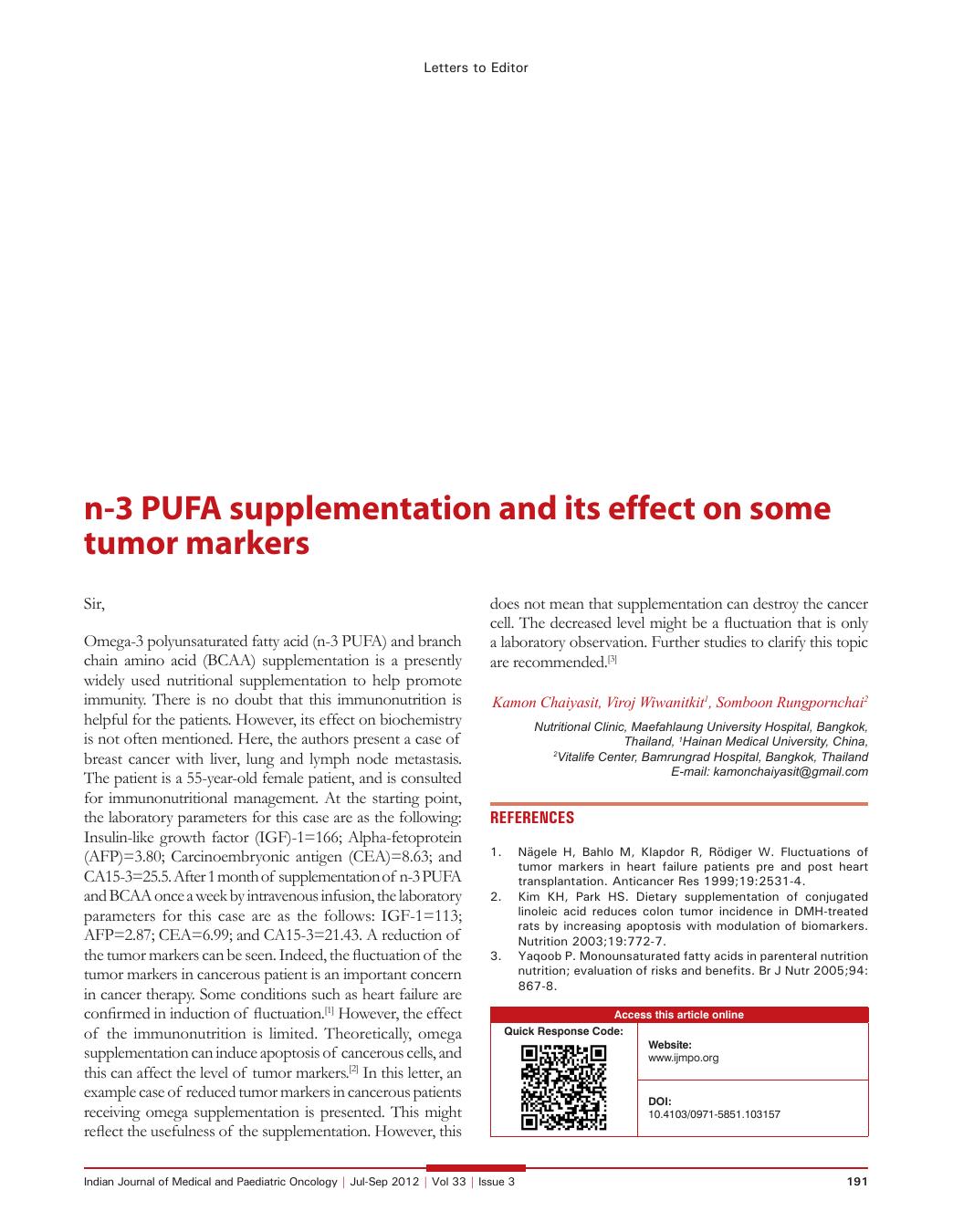n-3 PUFA supplementation and its effect on some tumor markers
CC BY-NC-ND 4.0 · Indian J Med Paediatr Oncol 2012; 33(03): 191
DOI: DOI: 10.4103/0971-5851.103157

Publication History
Article published online:
02 August 2021
© 2012. Indian Society of Medical and Paediatric Oncology. This is an open access article published by Thieme under the terms of the Creative Commons Attribution-NonDerivative-NonCommercial-License, permitting copying and reproduction so long as the original work is given appropriate credit. Contents may not be used for commercial purposes, or adapted, remixed, transformed or built upon. (https://creativecommons.org/licenses/by-nc-nd/4.0/.)
Thieme Medical and Scientific Publishers Pvt. Ltd.
A-12, 2nd Floor, Sector 2, Noida-201301 UP, India
Sir,
Omega-3 polyunsaturated fatty acid (n-3 PUFA) and branch chain amino acid (BCAA) supplementation is a presently widely used nutritional supplementation to help promote immunity. There is no doubt that this immunonutrition is helpful for the patients. However, its effect on biochemistry is not often mentioned. Here, the authors present a case of breast cancer with liver, lung and lymph node metastasis. The patient is a 55-year-old female patient, and is consulted for immunonutritional management. At the starting point, the laboratory parameters for this case are as the following: Insulin-like growth factor (IGF)-1=166; Alpha-fetoprotein (AFP)=3.80; Carcinoembryonic antigen (CEA)=8.63; and CA15-3=25.5. After 1 month of supplementation of n-3 PUFA and BCAA once a week by intravenous infusion, the laboratory parameters for this case are as the follows: IGF-1=113; AFP=2.87; CEA=6.99; and CA15-3=21.43. A reduction of the tumor markers can be seen. Indeed, the fluctuation of the tumor markers in cancerous patient is an important concern in cancer therapy. Some conditions such as heart failure are confirmed in induction of fluctuation.[1] However, the effect of the immunonutrition is limited. Theoretically, omega supplementation can induce apoptosis of cancerous cells, and this can affect the level of tumor markers.[2] In this letter, an example case of reduced tumor markers in cancerous patients receiving omega supplementation is presented. This might reflect the usefulness of the supplementation. However, this does not mean that supplementation can destroy the cancer cell. The decreased level might be a fluctuation that is only a laboratory observation. Further studies to clarify this topic are recommended.[3]


 PDF
PDF  Views
Views  Share
Share

